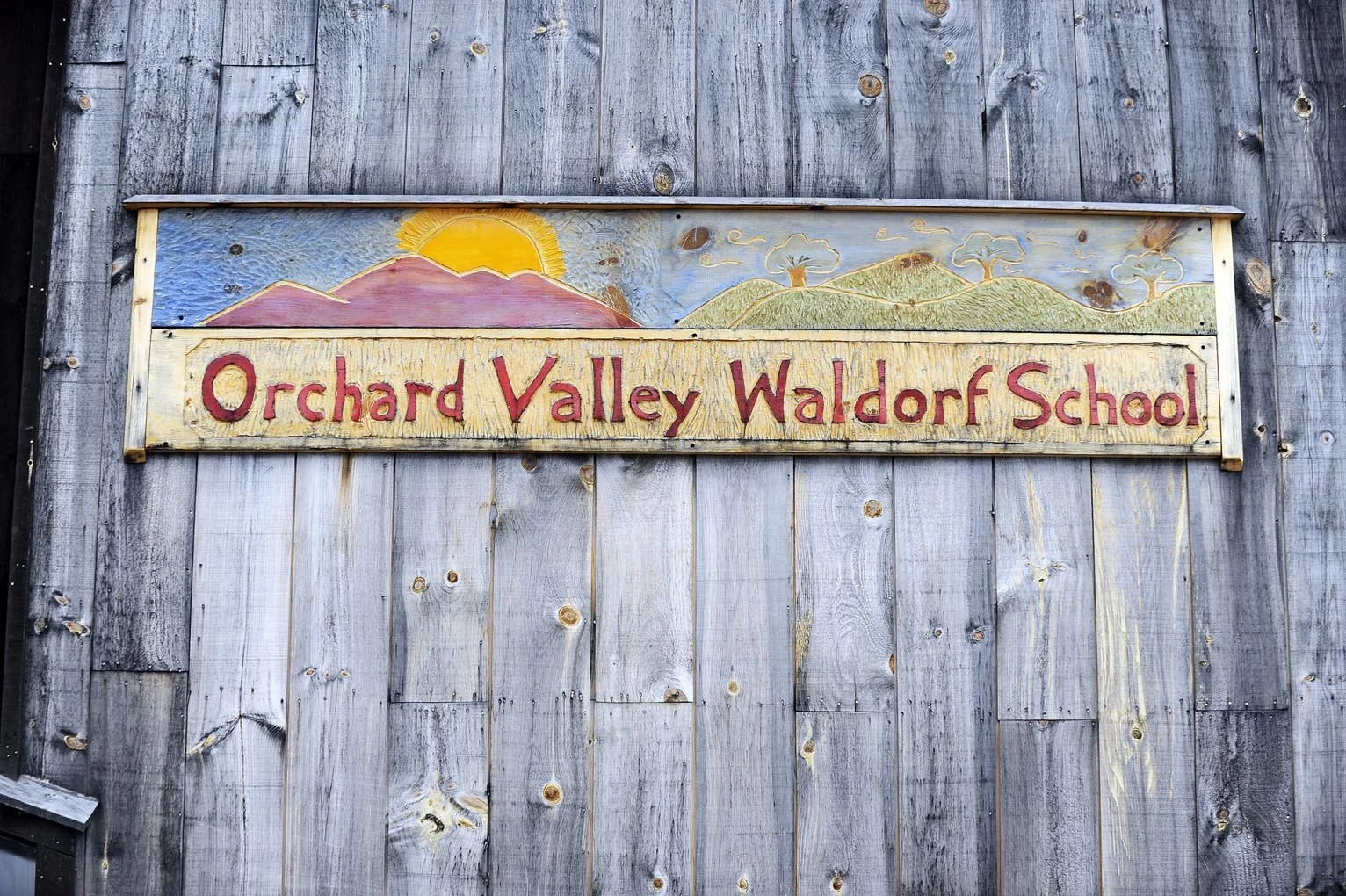It’s 8:25 am. The grades students have shaken their class teacher's hand, shared a word, and entered the classrooms. Then the class doors are closed. If you are lucky enough to be in the hallway at this time, you will be treated to the beautiful verses, songs, and recorder pieces that drift out from behind the doors like blossoms on a spring morning. It’s that lovely, that moving, the kind of moment that fills you up, as a parent and as faculty and staff.
And that “filling you up” feeling is one of the reasons we sing, says Libby Case, class 3/4 teacher. “You feel it in your body and in your brain and you connect with other people through the music,” she said. “It builds community.”
It’s true, too, for the early childhood classes, in which “singing is a group activity that’s joyful and makes you feel like part of the group,” says Apple Tree Kindergarten teacher Peggy Roche. “It’s a way to breathe together.”
The Waldorf curriculum places a great deal of importance on musical experiences for every child, from early childhood on up. Each class’s musical activities are appropriate to the children’s stage of development, and both support and are supported by the other elements of the curriculum.
In early childhood classes, the singing style might sound “sing-song,” but the energy of it creates a healing sound, a sound of beauty for the children, Peggy says. This sound stands in contrast to the world outside of school, which can be loud and over-stimulating to some children, she says.
In the grades, every class sings nearly every day. In grades one and two, students sing with the class teacher and in grade three they also begin to experience harmony through singing in rounds. The middle school grades (5-8) are also part of the Middle School Chorus with music teacher Katie Trautz, adding choral singing instruction several times a week.
The introduction to instruments, too, follows a rhythm that meets the child’s development. The pentatonic flute, a simple 7-hole flute, is introduced to first graders during the second half of the year. The soprano recorder is introduced in second grade, in which the children learn through mirror imitation of their teacher. The alto recorder is introduced in grades five and six, and the tenor and bass recorders are brought to students who are interested in grades six and seven. In addition, students add strings class twice each week with teacher Katie Trautz in grade three, during which students also begin to learn to read music and understand the language of music in written form. Strings instruction continues through grade eight.
Through all, keen listening skills are honed and fine motor skills are patiently fostered. Musical opportunities not only give the children a sense of joy and well being, but also help to build a solid social fabric within the class, bringing practice in working with others to achieve a beautiful common goal.
Sharing their creative musical endeavors is also an important part of the children's experiences. Please join us on Thursday afternoons at 1:30 in the cloth yurt for the Grades Sharing, which includes songs and poems the students have been working on during Main Lesson that week.
Mayfest, too, offers a wonderful opportunity to see the joy of music in our school played out against the beautiful backdrop of greening fields and budding tress. Join us Saturday, May 11, 10am to 1pm, for maypole dancing, strings performances, and so much singing! Each class will perform at least one piece of music, and the maypole celebration will include jigs, reels, and sweet harmony singing. Students will also informally present the “Crankie” they’ve been working on (a piece of artwork joined by music that tells a story) during Mayfest for all to enjoy. Join us!
A springtime song from an early childhood class:
One day when I went visiting
A little lamb was there
I picked her up and held her tight
She didn't seem to care
Her wool was soft, it felt so warm like sunshine on the sand
And when I gently put her down
She licked me on the hand



